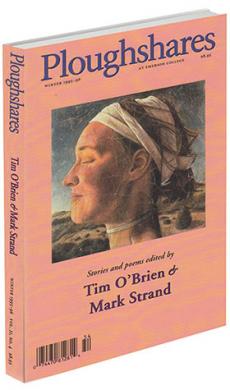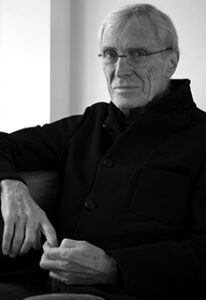rev. of The Master Letters by Lucie Brock-Broido
The Master of Letters
Poems by Lucie Brock-Broido. Knopf, $20.00 cloth. Reviewed by Wyn Cooper.
Rarely does a book of poems appear that takes us back to poems and poets we know we should read again. Even more unusual is a book that sends us back to these poems with an entirely new way of reading them.
The Master Letters is such a book. Based loosely on three unsent letters — addressed “Dear Master” and “Recipient Unknown” — that Emily Dickinson left behind, Lucie Brock-Broido’s second book is a series of fifty-two poems and letter-poems that serve as “Terrible Crystals” of the history of poetry in English, complete with its accompanying madness.
Though many of Brock-Broido’s poems refer to Dickinson’s work, an almost equal number allude to a broad range of other poets, from Shakespeare, Wyatt, and Donne, to the Romantic poets, Hopkins (whose influence is firmly felt), and Americans from this century. For example, here are the closing lines of “When the Gods Go, Half-Gods Arrive”: “Once you knew the powers / Of conversion, white powder cut / With nothing on the scales, / Delicate, Pythagorean, bold as a compass / / Needle pointing — North, a commerce / Of tiny clean white envelopes, / / Your letters to me long since / Lost, I’ve been loving you so long.” The title is from Emerson, the last line from Otis Redding, the dash from Dickinson, the closing couplet “sprung” from Hopkins, but the voice is pure Brock-Broido, lilting and staccato by turns, made all the more powerful by the echoes.
The contents of these poems tell us much about Dickinson and her peculiar role as woman writing what were arguably the most radical poems of the nineteenth century. Brock-Broido quotes snippets of letters Dickinson wrote to men, refracts her poetic techniques, and slips into and out of the personas of Dickinson, Master, and contemporary poet, all the while nodding to other voices. The book is a difficult history, but Brock-Broido shows us there are anxieties more cruel than influence.
Like Dickinson, Brock-Broido flies in the face of convention while constantly alluding to it. She uses old poetic devices as means to new ends. She pushes alliteration to the jagged edge. It would all be so much trickery if it didn’t have such a full and beating heart. The words Brock-Broido uses in the preamble to describe Dickinson’s Master letters could apply to her own poems: “These are gracious, sometimes nearly erotic, worshipful documents, full of Dickinson’s dramas of entreaty and intimacy, her distances — the Queen Recluse, little girl, the mystic, the breathless renouncer.”
The Master Letters requires the kind of attention and open mind so helpful when first encountering something so utterly new. Imagine living in the nineteenth century and suddenly coming across a sheaf of poems by Dickinson. Now you don’t have to imagine it, because Brock-Broido has conjured and conjugated Dickinson for the end of the millennium. She adds her own layers of sound, allusion, and drama until a simple, if skewed, nineteenth-century drawing room becomes a Gothic mansion. It’s hard to know what will turn up in the next room, but the surprise, like the book, is well worth the wait. Fortunately, there are five pages of very helpful notes that follow the poems. This is not an easy book, though it does not require a thorough knowledge of Dickinson in order to satisfy. It is an elaborate homage that is by turns hypnotic, frightening, and hilarious, and at all times brilliant.
Wyn Cooper is the author of The Country of Here Below,
a book of poems now in its third printing. He has work forthcoming in three poetry anthologies. He teaches at Marlboro College in Vermont.


